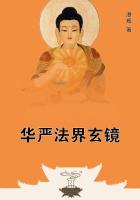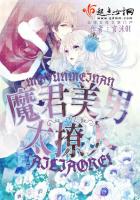They must remain in the marshes by the bridge at least till British corpses should be a common sight there. Then for the last grand scene; the silver-haired soldier-saint would give up his shattered sword to save further slaughter. Oh, it was well organised for an impromptu. But I think (I cannot prove), I think that it was while they stuck there in the bloody mire that someone doubted--and someone guessed."
He was mute a moment, and then said: "There is a voice from nowhere that tells me the man who guessed was the lover ... the man to wed the old man's child.""But what about Olivier and the hanging?" asked Flambeau.
"Olivier, partly from chivalry, partly from policy, seldom encumbered his march with captives," explained the narrator. "He released everybody in most cases. He released everybody in this case.
"Everybody but the general," said the tall man.
"Everybody," said the priest.
Flambeau knit his black brows. "I don't grasp it all yet," he said.
"There is another picture, Flambeau," said Brown in his more mystical undertone. "I can't prove it; but I can do more--I can see it. There is a camp breaking up on the bare, torrid hills at morning, and Brazilian uniforms massed in blocks and columns to march. There is the red shirt and long black beard of Olivier, which blows as he stands, his broad-brimmed hat in his hand. He is saying farewell to the great enemy he is setting free--the ******, snow-headed English veteran, who thanks him in the name of his men. The English remnant stand behind at attention; beside them are stores and vehicles for the retreat. The drums roll; the Brazilians are moving; the English are still like statues. So they abide till the last hum and flash of the enemy have faded from the tropic horizon. Then they alter their postures all at once, like dead men coming to life; they turn their fifty faces upon the general--faces not to be forgotten."Flambeau gave a great jump. "Ah," he cried, "you don't mean--""Yes," said Father Brown in a deep, moving voice. "It was an English hand that put the rope round St. Clare's neck; I believe the hand that put the ring on his daughter's finger. They were English hands that dragged him up to the tree of shame; the hands of men that had adored him and followed him to victory. And they were English souls (God pardon and endure us all!) who stared at him swinging in that foreign sun on the green gallows of palm, and prayed in their hatred that he might drop off it into hell."As the two topped the ridge there burst on them the strong scarlet light of a red-curtained English inn. It stood sideways in the road, as if standing aside in the amplitude of hospitality.
Its three doors stood open with invitation; and even where they stood they could hear the hum and laughter of humanity happy for a night.
"I need not tell you more," said Father Brown. "They tried him in the wilderness and destroyed him; and then, for the honour of England and of his daughter, they took an oath to seal up for ever the story of the traitor's purse and the assassin's sword blade. Perhaps--Heaven help them--they tried to forget it.
Let us try to forget it, anyhow; here is our inn.""With all my heart," said Flambeau, and was just striding into the bright, noisy bar when he stepped back and almost fell on the road.
"Look there, in the devil's name!" he cried, and pointed rigidly at the square wooden sign that overhung the road. It showed dimly the crude shape of a sabre hilt and a shortened blade; and was inscribed in false archaic lettering, "The Sign of the Broken Sword.""Were you not prepared?" asked Father Brown gently. "He is the god of this country; half the inns and parks and streets are named after him and his story.""I thought we had done with the leper," cried Flambeau, and spat on the road.
"You will never have done with him in England," said the priest, looking down, "while brass is strong and stone abides.
His marble statues will erect the souls of proud, innocent boys for centuries, his village tomb will smell of loyalty as of lilies.
Millions who never knew him shall love him like a father--this man whom the last few that knew him dealt with like dung. He shall be a saint; and the truth shall never be told of him, because Ihave made up my mind at last. There is so much good and evil in breaking secrets, that I put my conduct to a test. All these newspapers will perish; the anti-Brazil boom is already over;Olivier is already honoured everywhere. But I told myself that if anywhere, by name, in metal or marble that will endure like the pyramids, Colonel Clancy, or Captain Keith, or President Olivier, or any innocent man was wrongly blamed, then I would speak. If it were only that St. Clare was wrongly praised, I would be silent.
And I will."
They plunged into the red-curtained tavern, which was not only cosy, but even luxurious inside. On a table stood a silver model of the tomb of St. Clare, the silver head bowed, the silver sword broken. On the walls were coloured photographs of the same scene, and of the system of wagonettes that took tourists to see it.
They sat down on the comfortable padded benches.
"Come, it's cold," cried Father Brown; "let's have some wine or beer.""Or brandy," said Flambeau.














